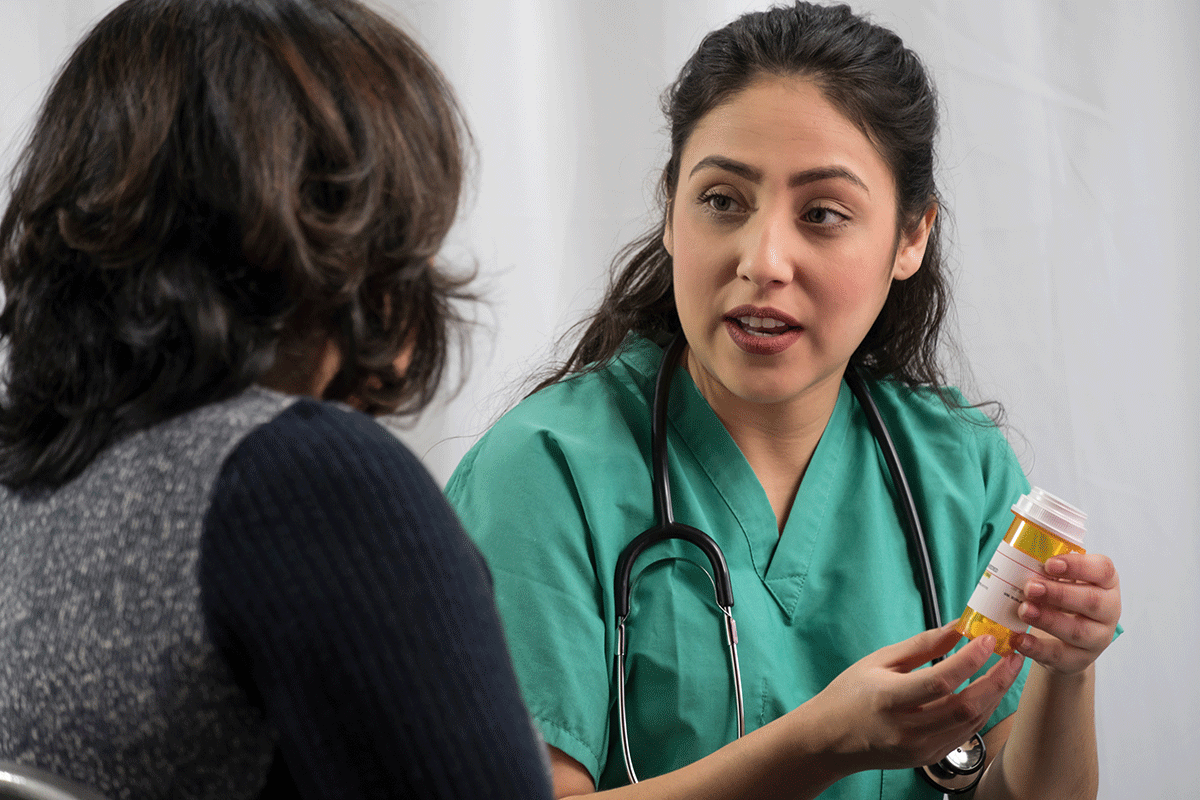Detox can be the most challenging stage of recovery to complete. During detox, you may experience mild to severe withdrawal symptoms, as well as cravings that make detox tough to get through. Medication-assisted treatment (MAT) can help you reduce your cravings and withdrawal symptoms, giving you a fighting chance to complete detox and move forward into rehab.
Addiction treatment centers in Colorado use MAT in combination with other forms of treatment such as emergency medical care, 24/7 supervision, and a fully licensed medical staff to ensure that you recover safely without relapsing. MAT can also be instrumental in helping you overcome your cravings during the rehab stage of your recovery. To find out more about MAT, contact Colorado Medication Assisted Recovery at 833.448.0127 today.
Learn More About Medication-Assisted Treatment
What is MAT? It is the use of medication combined with other forms of treatment. In most cases, it gives you more control over your recovery by reducing withdrawal symptoms and cravings. Some forms of medication can reverse the effects of drugs such as opioids, preventing life-threatening overdoses and other side effects.
Although MAT is not a primary form of treatment, it can lighten rehab’s burden by making you more comfortable, normalizing your brain chemistry, and blocking the euphoric effects of certain drugs. Best of all, most medications that we use are non-addictive. So, you do not have to worry about transferring your addiction from one drug to another.
One of the reasons why MAT is so effective is because it treats addiction as a chronic disorder. The goal is to manage your symptoms and cravings over an extended period of time, making it easier for you to focus on other therapeutic methods and build a lasting foundation for your recovery. As you work through the underlying causes of your addiction, you become more likely to maintain your recovery in the future.
What MAT Programs Are Available for Treatment?
There are several different medication types on the market today, many of them approved by the FDA for addiction treatment. Some of the most common medications include:
- Naloxone – Used to reverse the effects of opioids, such as heroin and fentanyl
- Naltrexone – Blocks opioid receptors, preventing the euphoric effect of opioids
- Methadone – Used to reduce cravings and withdrawal symptoms
- Buprenorphine – Used to reduce cravings and withdrawal symptoms
- Disulfiram – Used to create an unpleasant reaction when combined with alcohol
Acamprosate – Used to reduce cravings for alcohol
Each of these medications is used for different reasons and can address the effects of different drugs. When used correctly, they are highly effective in helping you overcome your addiction.
4 Benefits of MAT in Addiction Treatment
There are a number of ways that medication-assisted treatment at an addiction treatment center can help you, including:
Overdose Survival
When you overdose on opioids, your breathing will slow down or stop. This symptom can cause multiple health problems or fatalities. Although opioid addiction treatment centers provide a full medical staff, medications such as naloxone can reduce the effects of opioids and stop overdose. It can be a life-saving medication for many of those struggling with addiction.
.
Better Recovery Rates
One of the biggest struggles you may face in a substance abuse treatment program deals with your cravings. MATs are highly effective in curbing your cravings and blocking the effects of opioids and other drugs. In essence, they clear the path of recovery, giving you a better chance of completing your program without relapse.
A Decrease in Criminal Activity
People who use drugs are more likely to commit crimes to continue their addiction. Getting arrested and facing penalties does not always deter users from looking for more drugs. MAT programs are effective in reducing illicit drug use and related crimes. It can help someone who must complete a mandatory addiction treatment program after being charged with drug possession or distribution.
Higher Employment Rates
If your drug habit keeps you from getting and keeping a job, medication-assisted treatment can help. MAT programs help you practice more self-control. As a result, you show up to work on time, get your work done, and perform consistently. You don’t have to worry about losing another job.
Medication-Assisted Treatment Available at Colorado Medication Assisted Recovery
At Colorado Medication Assisted Recovery, we want to help you overcome your addiction to drugs or alcohol. Our medication-assisted treatment program is able to promote a lasting recovery without addiction. Call Colorado Medication Assisted Recovery at 833.448.0127 to get started with your treatment program today.
























